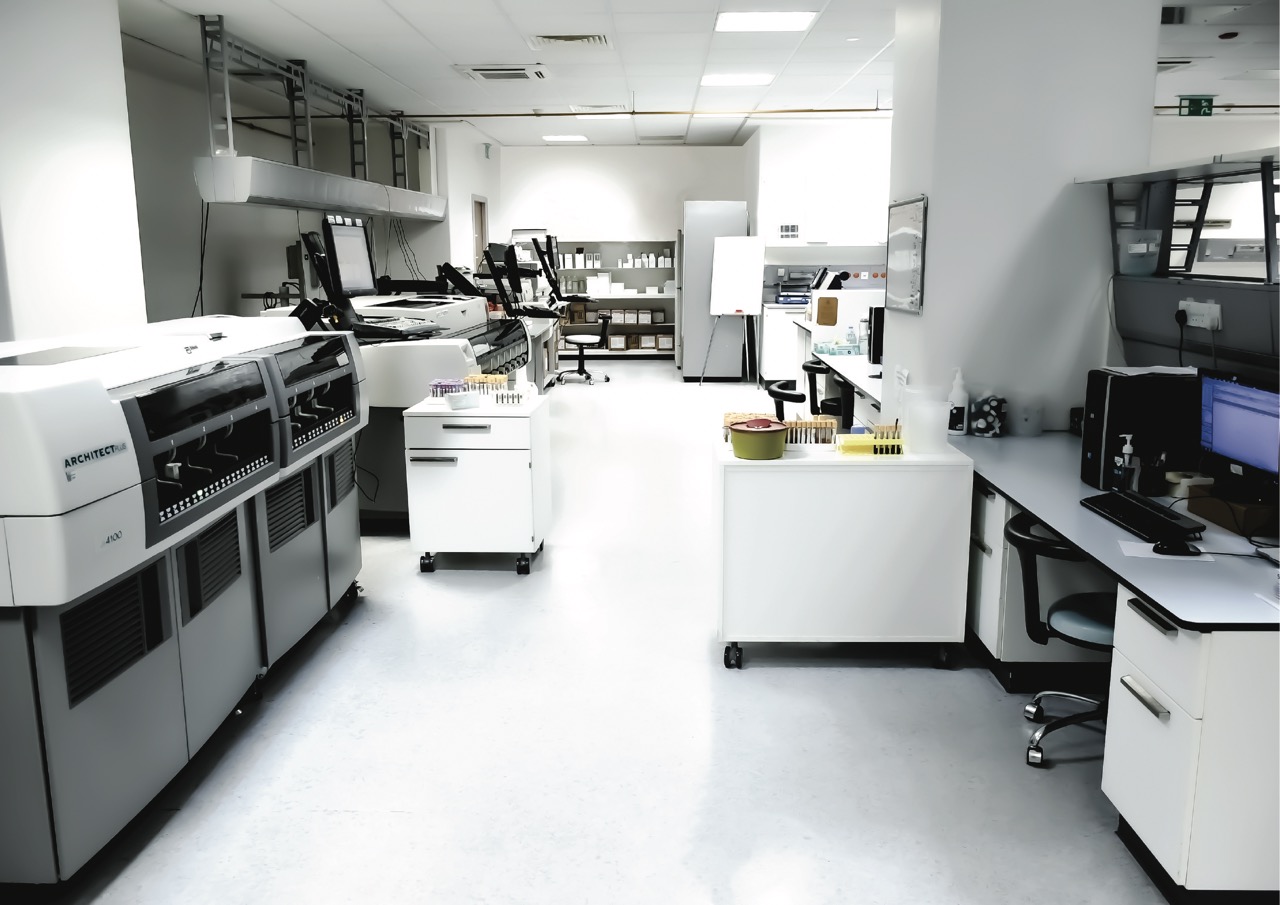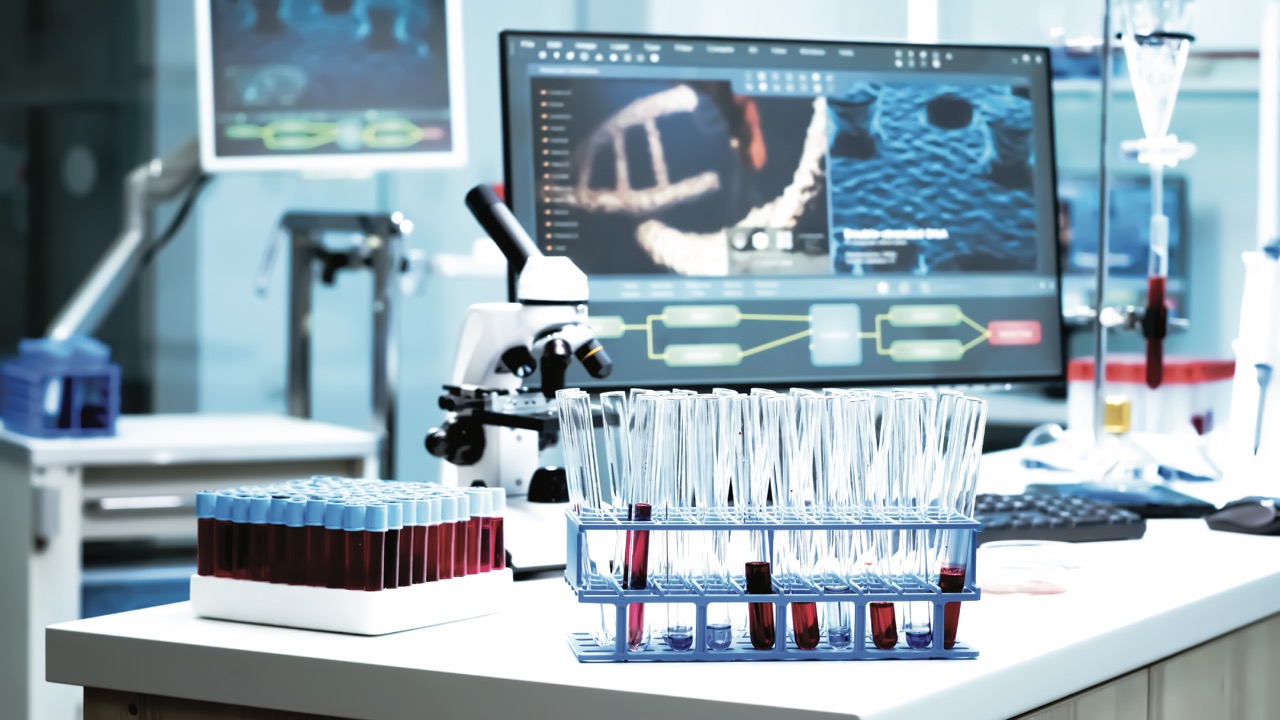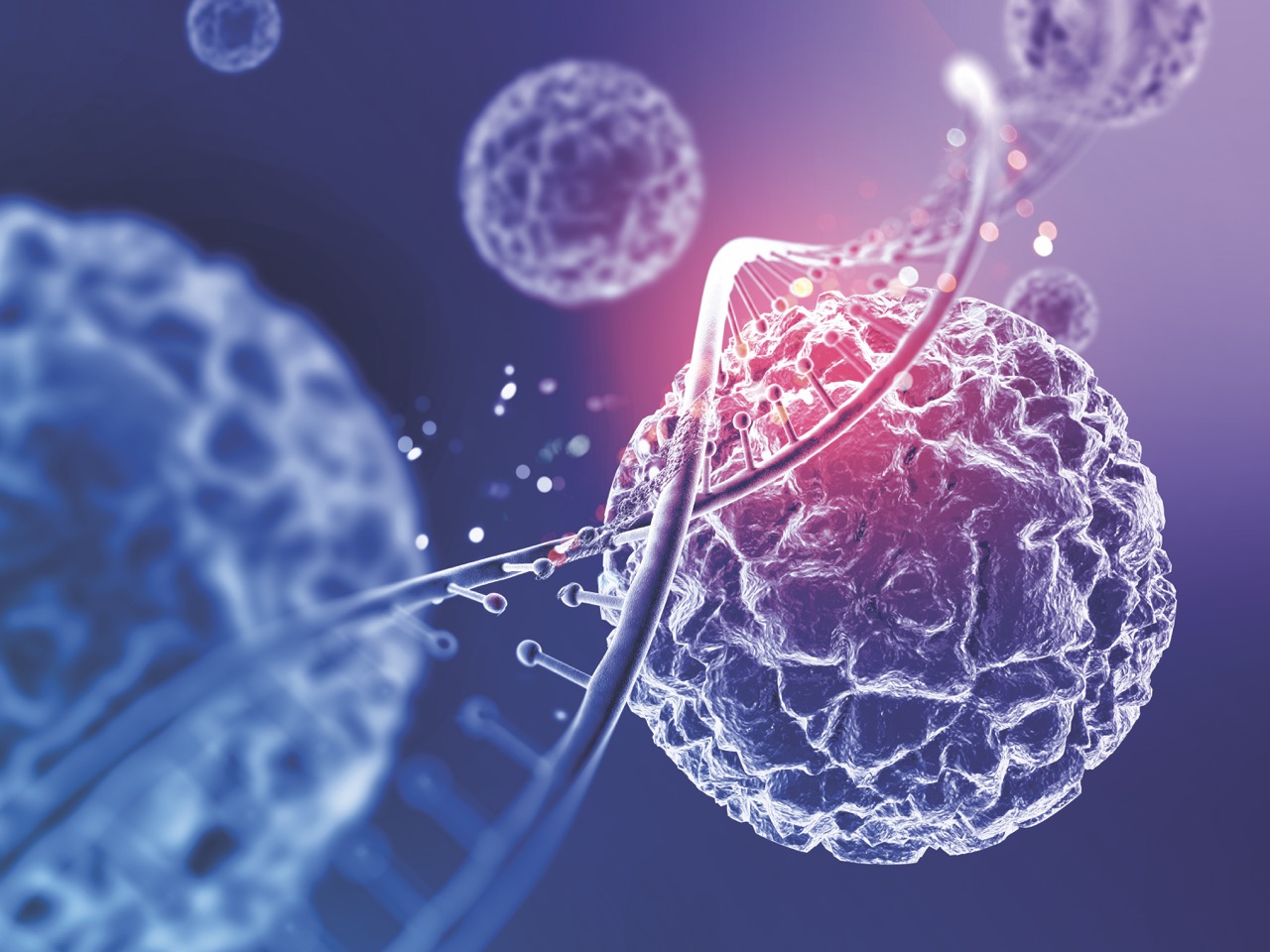
The Medical Genetics Diagnostic Laboratory is a specialty field concerned with the diagnosis, monitoring, and treatment of patients with common and rare hereditary diseases, as well as oncology patients. The primary field of application is to enlighten families by identifying individuals at risk within the family through clinical examinations and laboratory tests and family tree analyses for preimplantation, prenatal and/or postnatal diagnosis and treatment of genetic diseases with modern genetic applications.
Since its establishment, our laboratory has been continuing to utilize the latest technologies (cytogenetics, molecular genetics and genome analysis, molecular cytogenetics, pharmacogenetics) in diagnostic approaches related to genetic diseases and provide counselling services.

1. Cytogenetics Unit
Having been established within the Near East University Hospital Medical Genetics Diagnosis Laboratory, the Cytogenetics Laboratory provides routine services for chromosome (karyotype) analysis from all samples. Thanks to the analyses applied with today's contemporary techniques, our laboratory holds the distinction of being the only facility offering such services in the Turkish Republic of Northern Cyprus.
Many genetic diseases and syndromes such as intellectual disability, learning difficulties, autism, and Down syndrome are associated with structural and numerical abnormalities of chromosomes. These abnormalities can be associated with recurrent miscarriages, couples who are unable to conceive, individuals who do not menstruate, and especially carriers of balanced translocations.
The prevalence of balanced chromosome anomalies in outwardly normal adults is 1 in 250 among married couples. Therefore, it is important to check for balanced translocation carriage in couples who are considering having children.
Structural and numerical tests of chromosomes play a key role in the diagnosis, prognosis, treatment selection, and monitoring of haematological and oncological cancers. Tests conducted in the Cytogenetics and Molecular Cytogenetics Unit identify tumour-specific markers and provide contribution to clinical and pathological information for targeted treatments.
Sample types for which chromosome analysis is performed in our laboratory include;
- Peripheral blood, amniotic fluid,
- Chorionic villus sample (CVS),
- Amniocentesis material,
- Miscarriage (Abortus) material,
- Skin tissue,
- Biological materials such as bone marrow solid tumours.

2. Molecular Genetics and Genome Analysis Unit
The molecular genetics laboratory established within the Near East University Hospital Medical Genetics Diagnosis Laboratory provides laboratory services for postnatal diagnosis of patients and their families with diseases associated with changes (mutations) that create pathogenic effects at the gene level, or for prenatal diagnosis in pregnancies at risk for such diseases.
In our laboratory, which employs contemporary analysis methods, patients are informed by laboratory specialists about the types of samples required for molecular genetic tests, the techniques to be used in the analyses, and the potential results of the tests.
3. Molecular Cytogenetics (FISH and PGD-FISH) Unit
In the Molecular Cytogenetics Unit, analyses of anomalies that cannot be diagnosed using conventional chromosomal analysis methods are conducted using special DNA probes that bind to specific DNA regions and are coloured. The Fluorescence In Situ Hybridization (FISH) technique is based on the hybridization of normal DNA probes tagged with a fluorescent dye with the patient's DNA, in its natural environment, without disrupting the chromosomal structure.
While the FISH method can be used to detect numerical or structural chromosomal abnormalities both prenatally and postnatally, it is utilized in cancer genetics and preimplantation genetic diagnosis (PGD) as well.
In our laboratory, the types of tests conducted with FISH analysis include:
- Rapid FISH for anomaly examination (13, 18, 21, X, and Y) from amniotic fluid and CVS material (within 24 hours),
- Microdeletion analysis using FISH from amniotic fluid and CVS material,
- FISH analysis with specific probes from amniotic fluid and CVS material,
- FISH analysis with specific probes in blood, bone marrow, and other tissues,
- FISH analysis with specific probes in tumour tissue (e.g., HER2, PD-L1, NTRK1/2/3),
- FISH analysis with specific probes in haematological diseases (e.g., CML, AML),
- Sperm FISH analysis (13, 18, 21, X, and Y).
Despite rapid advancements in medicine, the success rate of treating diseases with medication is below the desired level. A large proportion of patients either show resistance to treatment despite the use of medications or are exposed to unwanted side effects from these drugs and may need new medications.
Genes are crucial in determining the safety and efficacy of the prescribed medication. A significant reason why the same dosage of a drug affects people differently is their genetic makeup.
The presence or absence of adverse side effects from the medications used can also be attributed to genes.
Pharmacogenetics is the study of how the body responds to specific drugs in relation to genes. Pharmacogenetic tests examine certain genes to help determine the types and doses of medications that may be appropriate for patients.
Pharmacogenetic Tests are concluded within 48 hours.
Why should pharmacogenetic testing be conducted?
- To determine whether the body will respond to a medication as expected,
- To find out the appropriate dosage for treatment,
- To determine in advance the possibility of the drug recommended for treatment reaching toxic levels in the tissues,
- To protect the patient from adverse drug reactions and inform the family,
- To identify and prevent harmful interactions between drugs in advance if multiple medications are used in treatment.

4. Medical Genetic Test Packages
Pharmacogenetic Tests
Pharmacogenetic tests measure the positive, negative, and neutral effects of medications used in the treatment of neurological, cardiological, haematological diseases, and cancer on the body.
Pharmacogenetic Neurology 1
Pharmacogenetic Neurology 2
Pharmacogenetic Haematology
Pharmacogenetic Cardiology
Pharmaco-onco-genetics (Lung)
Pharmaco-onco-genetics (Colorectal)
Pharmaco-onco-genetics (Breast)
Pharmaco-onco-genetics (Head and Neck)
Pharmaco-onco-genetics (Skin)
Pharmaco-onco-genetics (Pancreas and Bile)
Clopidogrel Resistance Test (3 mutations)
Abacavir (HIV) Resistance Test
Proton Pump Inhibitor (PPI) Resistance Test
Warfarin Resistance Test

Genetic Disease Carrier Tests
Genetically inherited diseases are passed from generation to generation. The Genetic Disease Carrier Package is recommended not only for healthy individuals but also for those planning to start a family.
- Chromosome Analysis
- SMA Carriage
- Beta Thalassemia
- Alpha Thalassemia
- Cystic Fibrosis
- Hemochromatosis
- Congenital Deafness
- FMF (Familial Mediterranean Fever)
Breast and Gynaecological Cancer Genetic Tests
The risk of developing breast and gynaecological cancers increases in women who have close family members with these types of cancers. Genetic tests become even more important for women of all ages in this group. Certain changes in the BRCA1 and BRCA2 genes can be detected through genetic testing.
- BRCA1
- BRCA2

IVF Infertility Women Genetic Tests
Recurrent miscarriage and unhealthy baby birth in patients receiving in vitro fertilization treatment may be due to a genetically transmitted disease. Genetic tests prevent the possibility of miscarriage and provide great benefit in predicting chromosomal disorders, metabolic and genetic problems that may occur in the baby.
- Chromosome Analysis
- Coagulation Factors (12 Mutations)
- Clopidogrel and Warfarin Drug Resistance Test

IVF Infertility Male Genetic Tests
Low or absent sperm count is also one of the obstacles to couples achieving their dream of pregnancy. Male genetic tests are used to predict the presence of sperm production. Genetic screening tests before pregnancy diagnose carrier status for the most common genetically inherited diseases in the population.
- Chromosome Analysis
- Y Chromosome Microdeletion
- Cystic Fibrosis Carrier Test

Pre-Pregnancy Genetic Tests
Pre-pregnancy genetic screening tests diagnose carrier status for the most common genetic diseases in society.
- Chromosome Analysis (Female-Male)
- Coagulation Panel (12 Mutations)
- Warfarin and Clopidogrel Resistance Test